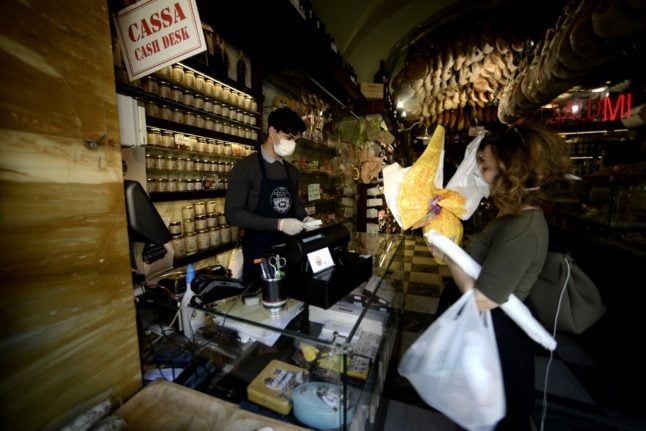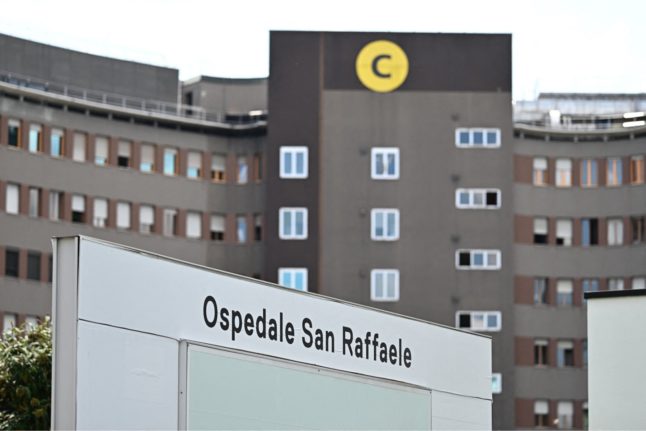Just over a year since Italy was first hit by the outbreak of Covid-19, people in Italy are now facing a second Easter in lockdown.
The decision came to limit movements and gatherings during a national holiday that normally sees Italians visit friends and family or make trips to the seaside.
EXPLAINED:
- Which zone is your region in under Italy’s lockdown?
- What are the rules in Italy’s ‘red zones’?
- What are the rules in Italy’s ‘orange zones’?
In a bid to control movement during the Easter weekend, Italian authorities have placed the whole country in the harshest of Covid-19 restrictions, moving every region into a ‘red’ zone.
To bolster lockdown efforts, the Ministry of the Interior has called for increased security, including deploying an extra 70,000 police officers to patrol areas at high risk of assemblies. Those spaces include parks, urban areas, coastlines, roads, train stations, ports and airports.
Italy’s Minister of the Interior, Luciana Lamorgese, defined the surveillance as “rigorous” but balanced during a meeting at the National Committee for Order and Security on Thursday.
READ ALSO: Italy to remain in partial lockdown until end of April
The current orange or red restrictions are in force until midnight on Friday, after which, the whole of Italy will be placed under red zone restrictions for the days of April 3-5th.
‘Red zone’ over Easter for all of Italy
The usual rules for a red zone include a complete ban on moving between municipalities and moving around within your own area, unless it’s for essential reasons, by either public or private transport. You cannot travel to any private home other than your own.
Exceptions are made to this rule over the Easter weekend, however. From April 3rd-5th, you can travel within your region to visit friends and relatives, once a day between 5am and 10pm.
No more than two adults, plus children under 14, should travel together at once.
READ ALSO: 12 Italian Easter foods you have to try at least once
Restaurants and bars are closed to diners, though they can continue to offer takeaway or home delivery.
All cultural sites, including museums, galleries, cinemas, theatres and concert halls, are shut.
In red zones, shops are closed except for those deemed essential, which include supermarkets and other food shops, tabacchi (tobacconists/newsagents), and pharmacies. Children’s clothes shops are also open.
Religious services can continue to take place, with social distancing and other precautions.

Hairdressers and beauticians will be closed.
All team sports activities are suspended. Solo exercise such as running or walking is allowed.
Travel to a second home is allowed only if you can prove you had the right to enter the property (as owner or tenant) before January 14th 2021.
This means new short-term rentals are not allowed, and you can’t stay with relatives: “The house of destination must not be inhabited by people not belonging to the family unit”, according to the health ministry.
Some regions have placed their own restrictions on visits from non-residents over Easter.
READ ALSO: ‘Don’t come’: Italian regions seek to stop second-home owners visiting
Apart from this exception for second homes, Italy has a nationwide travel ban on all non-essential journeys between regions. Whichever zone they’re in, people are only supposed to leave their own region for urgent reasons like work or medical emergencies.
Italy also has a national curfew in place every night between 10pm and 5am.
If you need to leave the house between these hours, or travel between towns or regions, or within a red zone, you should be prepared to fill in a self-declaration form justifying the reasons for your trip.
Please note The Local is not able to advise on specific situations. For more information on the restrictions please see the Italian Health Ministry’s website (in English).



 Please whitelist us to continue reading.
Please whitelist us to continue reading.
Total contradiction! No wonder people are confused: ….
“The current orange or red restrictions are in force until midnight on Friday, after which, the whole of Italy will be placed under red zone restrictions for the days of April 3-5th.
‘Red zone’ over Easter for all of Italy
The usual rules for a red zone include a complete ban on moving between municipalities and moving around within your own area, unless it’s for essential reasons, by either public or private transport. You cannot travel to any private home other than your own.
Exceptions are made to this rule over the Easter weekend, however. From April 3rd-5th, you can travel within your region to visit friends and relatives, once a day between 5am and 10pm.
No more than two adults, plus children under 14, should travel together at once.”
Andrew Chmielewski